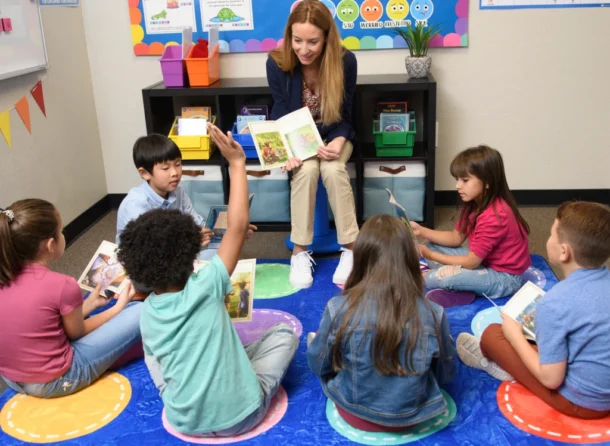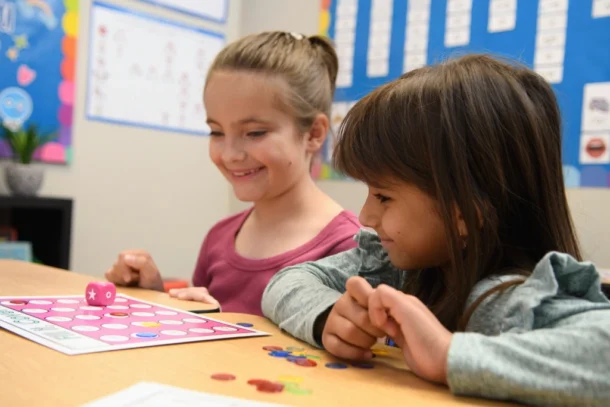Phonemic awareness is a foundational skill that plays a crucial role in a child’s ability to read effectively. It involves the ability to hear, identify, and manipulate individual sounds—phonemes—in spoken words. This skill is a strong predictor of reading success and literacy development in children. In this article, we will delve into the importance of phonemic awareness and explore how it impacts reading success.
Understanding Phonemic Awareness
Phonemic awareness is not about reading letters or words; it’s about the sounds that make up words. Children who develop strong phonemic awareness skills can recognize and manipulate sounds in spoken language, which is essential for learning to read and spell.

Key Components of Phonemic Awareness
Phonemic awareness includes several components that help children understand the structure of language. These components include:
- Phoneme Isolation: Recognizing individual sounds in words.
- Phoneme Identity: Identifying common sounds in different words.
- Phoneme Categorization: Recognizing the word with a different sound in a group of three or four words.
- Phoneme Blending: Listening to a sequence of separately spoken sounds and combining them to form a word.
- Phoneme Segmentation: Breaking a word into its individual sounds.
- Phoneme Deletion: Recognizing what word remains when a specified phoneme is removed.
Why Phonemic Awareness Matters
Phonemic awareness is critical because it lays the groundwork for reading and spelling. Children with strong phonemic awareness can better understand how sounds map onto letters, an essential skill for decoding words while reading.
Phonemic Awareness Lesson Plans and Activities
Creating engaging and effective lesson plans for phonemic awareness is vital for educators and parents. Here are some strategies and activities to enhance phonemic awareness in children:
Lesson Plan Ideas
- Sound Matching Games: Use picture cards or objects to help children match words with the same beginning or ending sounds.
- Rhyming Activities: Encourage children to identify and generate rhyming words through songs, poems, or rhyming games.
- Sound Segmentation Practice: Use blocks or counters to help children segment words into individual sounds by pushing a block for each sound heard.
- Nonsense Words Practice: Introduce nonsense words to help children focus on the sounds rather than the meaning. This can be particularly useful for phonemic awareness activities as it emphasizes sound recognition.
- Sound Manipulation Tasks: Challenge children to change one sound in a word to make a new word, like changing the /c/ in “cat” to /b/ to form “bat.”
Activities PDF and Resources
Creating a phonemic awareness activities PDF can be a handy resource for teachers and parents. These PDFs can include printable worksheets, games, and activities that focus on various phonemic awareness skills. Resources like these ensure that children have ample practice opportunities both in and out of the classroom.

The Role of Phonemic Awareness in IEP Goals
For children with learning disabilities or reading difficulties, individualized education program (IEP) goals often include phonemic awareness objectives. These goals are tailored to meet each child’s specific needs and help them develop essential reading skills.
Setting Phonemic Awareness IEP Goals
When setting IEP goals for phonemic awareness, it’s crucial to:
- Assess Current Skills: Evaluate the child’s current level of phonemic awareness to identify specific areas of need.
- Set Measurable Objectives: Create clear, measurable goals that focus on improving specific phonemic awareness skills.
- Use Evidence-Based Interventions: Incorporate research-backed strategies and activities to support phonemic awareness development.
- Monitor Progress: Regularly track the child’s progress toward their IEP goals and adjust strategies as needed.
The Use of Nonsense Words for Phonemic Awareness
Nonsense words, or pseudo-words, are an effective tool for teaching phonemic awareness. These made-up words help children focus on decoding sounds without relying on their memory of known words. Here’s how nonsense words can be utilized:
Benefits of Nonsense Words
- Focus on Sound Recognition: Nonsense words encourage children to pay attention to individual sounds rather than word meaning.
- Develop Decoding Skills: Practicing with nonsense words helps children develop decoding skills, which are essential for reading unfamiliar words.
- Reduce Guessing: Since nonsense words are not in a child’s vocabulary, they cannot rely on guessing and must use their phonemic awareness skills to decode the word.
Implementing Nonsense Words in Activities
Incorporate nonsense words into phonemic awareness activities by using flashcards or word lists. Encourage children to segment, blend, and manipulate the sounds in these words to reinforce their phonemic awareness skills.
Conclusion
Phonemic awareness is a vital component of reading success. By focusing on developing this foundational skill, children can enhance their ability to decode words, understand language structure, and become proficient readers. Through targeted lesson plans, engaging activities, and the strategic use of nonsense words, educators and parents can support children’s phonemic awareness development. This, in turn, lays the groundwork for a lifelong love of reading and learning.
Understanding the impact of phonemic awareness on reading success empowers educators, parents, and caregivers to make informed decisions about children’s literacy education. With the right strategies and resources, every child can develop the phonemic awareness skills needed to thrive as a reader.
Boost Your Child’s Reading Skills with PDX Reading Specialist!
If you’re ready to take the next step in enhancing your child’s phonemic awareness and reading skills, don’t hesitate to reach out to PDX Reading Specialist. Our comprehensive assessments are tailored to identify your child’s specific needs and develop a customized plan to support their literacy journey. Contact us today to schedule an evaluation and learn more about how we can assist in fostering your child’s reading success.


